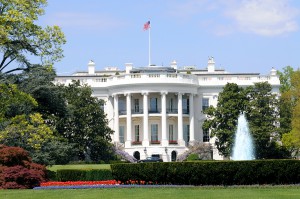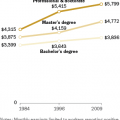 The White House has put the spotlight on the Millennial generation, releasing a number of data-rich reports about its members, where they stand economically and what potential impacts members may have on the country in years to come.
The White House has put the spotlight on the Millennial generation, releasing a number of data-rich reports about its members, where they stand economically and what potential impacts members may have on the country in years to come.
The justification for this focus is simple: Millennials represent one-third of the population.
Millennials are described as those born between 1980 and the mid-2000s. As the oldest wave of this generation reaches its 30s, its impacts on the economy and America’s economic future are beginning to be felt. Some distinguishing traits of this generation are also emerging, as pointed out in a series of reports created by the White House.
The focus on Millennials is justified by more than sheer numbers. This generation is the very first to have access to the Internet during their formative years.
In addition, they are considered the most educated generation to date. About 61% of Millennials who have reached adulthood have attended college. Only 46% of the Baby Boomer generation can say the same.
The White House has uncovered a number of other interesting facts about this generation that have implications for educational institutions, potential employers, business as a whole and the country’s future. Here are just a few of the items revealed in the White House’s studies:
Millennials are highly educated.
In 2013, an estimated 47% of 25 to 34-year-olds had received a postsecondary degree and 18% had completed some postsecondary education.
The White House estimates Millennials are likely to see a significant payoff financially thanks to their degrees despite many coming of age during the Great Recession.
Bachelor’s degree holders are 6 times more likely to have earnings in the top income bracket versus those with a high school diploma only. The unemployment rate for bachelor’s degree holders was only 3% as of September 2014.
Millennials are more likely to focus on studies solely during college years while relying on student loans to obtain their degrees.
Since 2000, the participation rate in the labor force among high school and college students has declined more sharply than those who are not enrolled. Outstanding student loan debt, however, passed the $1 trillion mark in 2014, which makes it the second largest category of household debt.
Working Millennials are staying with employers longer.
Millennials are less likely to have been with their employers for less than a year compared to Generation Xers at the same age and they are more likely work for the same employers for longer periods, such as 3 to 6 years.
Millennials have strong ties.
They value family, friends and community involvement. An estimated 50% say it is important to them to live close to family and friends, compared to 29% of Baby Boomers and 40% of Generation Xers.
A 1997 Gallup survey found that some 9 in 10 children reported high levels of closeness with parents. Tight relationships formed by this generation extend to work and other commitments, as well, the White House reports.
Millennials are entrepreneurial.
More than 50% of Millennials have stated they want to start their own businesses. Some Millennials are even starting their own businesses while still in college.
While only time will tell the full impacts of this generation, the White House sees Millennials as a recipe for innovation and economic success as highly skilled, well-educated workers enter the labor force.





